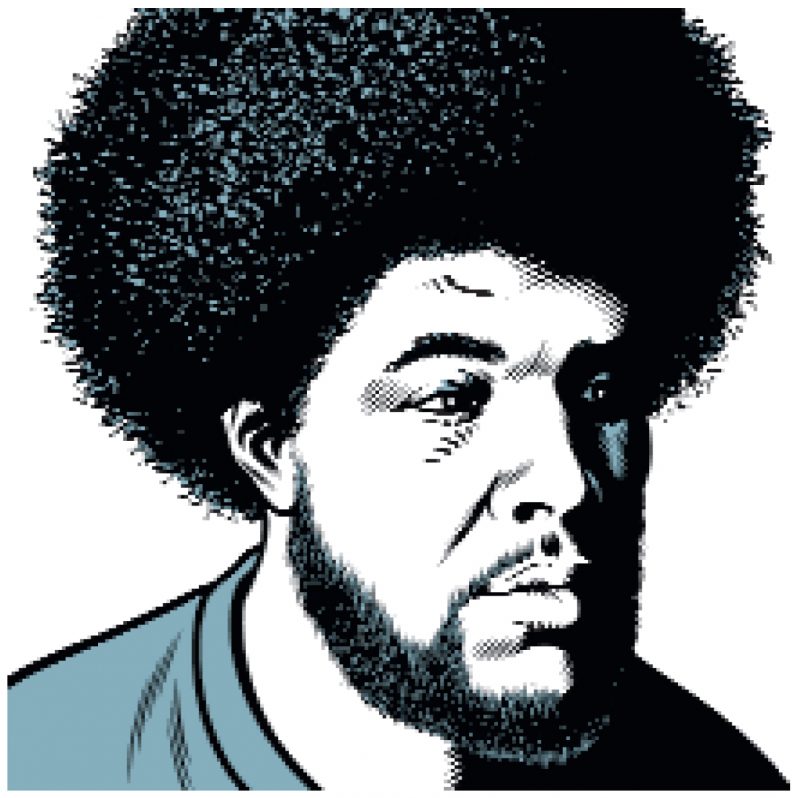If hip hop were like high school (and on too many days it is just like high school), it would be a wild public high school with ice detectors: If you’re not wearing any, you can’t get in. Like most high schools, the most popular kids would be the toughest kids and the richest kids, the ones who go to class bling-blinging or don’t go at all. But every high school has its nerd element; the kids looking to actually learn something; the kids so unashamed to be smart, they sneak into the library on weekends. The Roots are not nerds. Ever since De La Soul Is Dead, hiphop’s so-called alternative groups (which means they’re not exalting the world and values of the ghetto) have been making it clear that just ’cuz they’re smart doesn’t mean you can kick their ass. But the Roots have carried on the legacy of De La Soul and A Tribe Called Quest by making hiphop that’s artful, unconcerned with alpha-male machismo, and unafraid to show its intellectual side. They are so important to the overall well-being of hip hop, if they did not exist, we would have to invent them.
The Roots began in 1987, as a quartet called the Square Roots. For three years the art school students played on street corners in Philadelphia to build their skills. In six years they’ve released six albums, two of which are classics—their major label debut, Do You Want More?!!!??!, and their latest, Phrenology. Their leader, in front of and behind the camera, has always been Ahmir Thompson, a.k.a. Questlove or Questo, the widely loved, big-Afro’d musical dynamo who owns every episode of Soul Train and thousands of videos of the legends of soul in performance (these are the people he calls the Yodas). He’s worked on some of the greatest albums in modern music, including D’Angelo’s landmark Voodoo and Erykah Badu’s Mama’s Gun.
Our interview took place on a Tuesday, between 11:30 a.m. and 2 p.m., in his room at the Paramount Hotel in Manhattan. He wore a yellow Muhammad Ali T-shirt and a red, black, and green wristband. His tall, thin sister sat nearby. As we spoke, his various phones rang repeatedly: his tour manager asking when he’d be done and ready for the next appointment, the hotel asking what time he’d be checking out. At least four times he told the hotel he’d be down in five minutes, while rolling his eyes, then went on with the interview.
—Touré
“IT’S BLASPHEMY TO SAY THIS, BUT CRACK IS RESPONSIBLE FOR HIPHOP.”
THE BELIEVER: So you have a theory that black people make...
You have reached your article limit
Sign up for a digital subscription and continue reading all new issues, plus our entire archives, for just $1.50/month.
Already a subscriber? Sign in





